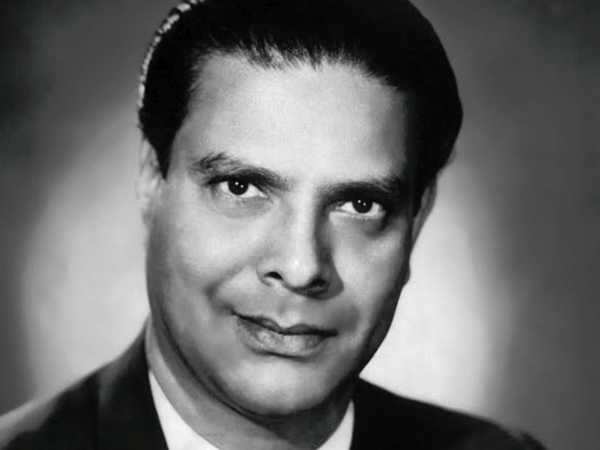
Shakeel Badayuni, as the name suggests, was born in the UP town of Badaun in 1916. His father wanted to give him a classical education and arranged tutors to teach him Arabic, Urdu, Persian and Hindi. Young Shakeel attended Aligarh University in the 1930s, which was at the forefront of political ideologies. He was strongly inspired by the charged atmosphere. He soon started making a name for himself in mehfils and mushairas. It’s said composer Naushad heard him in one such mushaira and counselled him to write lyrics for films. Naushad recommended him to AR Kardar, who signed Shakeel for the film Dard (1947). Afsana likh rahi hoon, sung by Uma Devi (actress Tun Tun) from the film proved to be hugely successful. Naushad and Shakeel soon became friends. Shakeel could sing and Naushad wrote poetry and the duo shared a bond as they understood each other’s art. Naushad almost never worked with any other lyricist till Shakeel’s death in 1970 due to tuberculosis. The other music directors he gelled well with were Hemant Kumar and Ravi. Shakeel won three Filmfare Awards back-to-back, for Chaudhvin Ka Chand (1960), Gharana (1961) and Bees Saal Baad (1962). Ironically, the first two were composed by Ravi while the latter was composed by Hemant Kumar.
Mela (1948)
Shakeel brought alive Naushad’s compositions in songs such as the romantic Gaaye ja geet milan ke (Mukesh), the pathos-filled Yeh zindagi ke mele (Mohammed Rafi) and the Shamshad Begum-Mukesh duet, Main bhanwra tu hai phool.
Deedar (1951)
The Shamshad Begum-Lata Mngeshkar duet, Bachpan ke din bhula na dena, also reprised by Rafi still spells magic. The other memorable ditties are Hue ham jinke liye barbad sung by Rafi and the Rafi-Lata duet Dekh liya maine kismat. The songs composed by Naushad were true to the film’s motif.
Baiju Bawra (1952)
Memorable songs from the film include Man tarpat Hari darshan ko aaj,sung by Rafi, Aaj gawat man mero (raag desh), where Ustad Amir Khan gave vocals with another great singer DV Paluskar, and the evergreen Tu ganga ki mauj (raag bhairavi), sung by Rafi.
Amar (1954)
Shakeel, Rafi and Naushad were the forces behind another immortal bhajan, Insaaf ka mandir hai yeh, bhagwan ka ghar hai. The poet in Shakeel reached a new height when he wrote the song that glorified pain - Na milta gham to barbadi ke afsane kahan jaate.
Uran Khatola (1955)
The dirge Chale aaj tum jahan se, hui zindagi parai, sung by Rafi, is rated among the top tragic songs of all time. Lata’s frothy Dil ka salaam le jaa and Rafi’s romantic, Mohabbat ki rahon mein chalna sambhal ke too are still hummed today.
Mother India (1957)
Naushad and Shakeel produced songs such as the flirty Gaadiwaale gaadi dheere hankh re sung by Rafi and Shamshad Begum, the Holi song, Holi aayi re kanhai by Shamshad Begum, the pastoral Dukh bhare din beete re bhaiya sung by Shamshad Begum, Rafi, Manna Dey and Asha Bhosle and the philosophical Duniye mein hum aayein hai to jeena hi padega by Lata and sister Usha Mangeshkar.
Mughal-e-azam (1960)
Shakeel excelled in the iconic Pyar kiya to darna kya, picturised in the palace of mirrors. A Janmashtami bhajan, Mohe panghat pe, was added to highlight Akbar’s secular roots. Other gems from the 12 song album included the qawwali, Teri mehfil mein kismat aazmakar ham bhi dekhenge, sung by Lata and Shamshad, the paean to love Zindabad, zindabad, the spiritual Bekas pe karam kijiye by Lata and the classical Prem jogan ban ke and Shubh din aayo raj, sung by Bade Ghulam Ali Khan.
Kohinoor (1960)
Shakeel wrote a fast paced classical bhajan, Madhuban mein Radhika naache re, sung by Rafi and composed by Naushad. Other memorable numbers include the duets Do sitaron ka zameen par hai milan and Koi pyar ki dekhe jaadugari, sung by sung by Lata and Rafi.
Gharana (1961)
He partnered with Ravi and came up with songs like the evergreen children’s classic Dadi amma dadi amma maan jaao, sung by Asha Bhosle and Kamal Barot, the beautiful bhajan, Jai Raghunandan, jai Siyaram and the ghazal, Husnwale tera jawab nahin.
Gunga Jumna (1961)
It’s unbelievable that songs like Nain lad jainhe sung by Rafi, Do hanson ka joda bicchad gaya re sung by Lata, the duet, Dhoondho dhoondho re saajna, sung by Lata and Rafi were written by a poet steeped in Urdu tradition. He also wrote another great bhajan, Insaaf ki dagar pe, baccho dikhao chal ke, sung by Hemant Kumar.
Bees Saal Baad (1962)
Shakeel collaborated with Hemant Kumar and the duo came up with gems like the haunting Kahin deep jale kahin dil, sung by Lata, the frothy, Zara nazron se keh do ji and Beqarar karke hame yun na jaiye, sung by Hemant himself as also the fun-filled Sapne suhane ladakpan ke, sung by Lata.
Sahib Bibi Aur Ghulam (1962)
Shakeel again collaborated with Hemant Kumar in this classic. Na jao saiyan chhuda ke baiyan, which chronicled Choti bahu’s pain and Piya aiso jiya mein, which highlighted her desire for her husband, were sung by Geeta Dutt. The poignant Meri baat rahi mere man mein and the effervescent Bhanwara bada nadan haay were sung by Asha Bhosle.
Leader (1964)
Apni azadi ko hum hargiz mita sakte nahin, sung by Rafi – was a response perhaps to the Chinese aggression, which had occurred two years ago. Other gems included Mujhe duniyawalon sharabi na samjho by Rafi, the Lata-Rafi duets, Ek shahenshah ne banwa ke haseen Tajmahal,Tere husn ki kya tareef karoon and the Asha Bhosle dance number Daiya re daiya laaj mohe lagi.
Dil Diya Dard Liya (1966)
The film is known for its tragic songs like Koi saagar dil ko behlata nahin, Guzare hain aaj ishq mein, which spewed revenge, and Dilruba maine tere pyar mein kya kya na kiya, all sung by Rafi. It also had Lata’s paean to lost love, Phir teri kahani yaad aayi. To balance it all Shakeel and Naushad came up with the breezy Sawan aaye, ya na aaye, sung by Asha and Rafi.
Ram Aur Shyam (1967)
Shakeel wrote the exquisite ghazal, Aaj ki raat mere sung by Rafi. It also had the lighthearted title song, Aayi hai baharein mite julmon sitam.
Sunghursh (1968)
Shakeel wrote an authentic folk song, Mere pairon mein ghungroo bandha de, sung by Rafi,. The soft romantic ghazal, Jab dil se dil takrata hai sung by Rafi, is still hummed. It was Naushad’s and Shakeel’s last collaboration for Dilip Kumar.
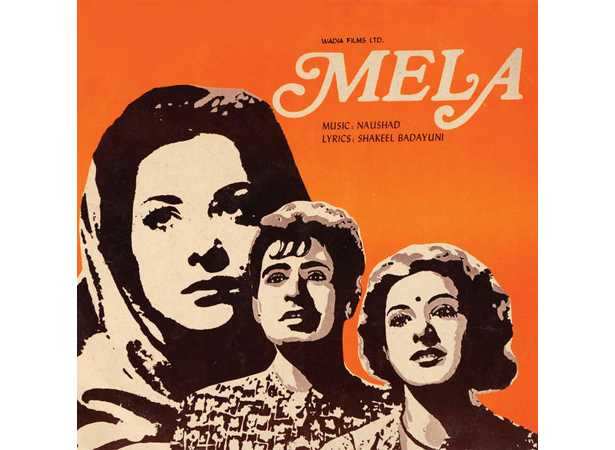
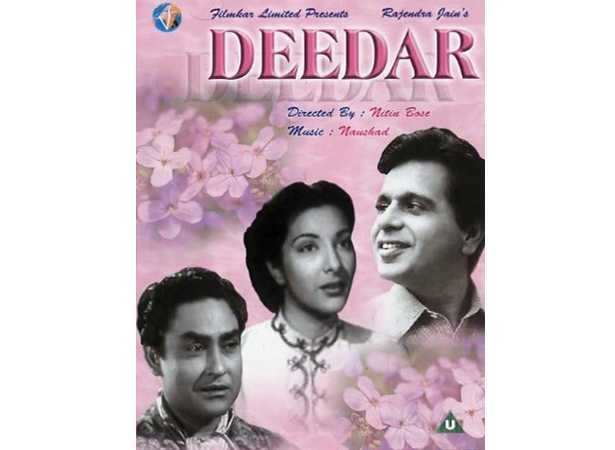
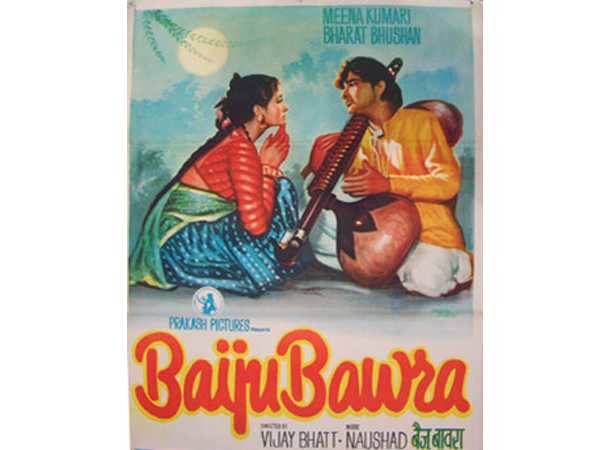
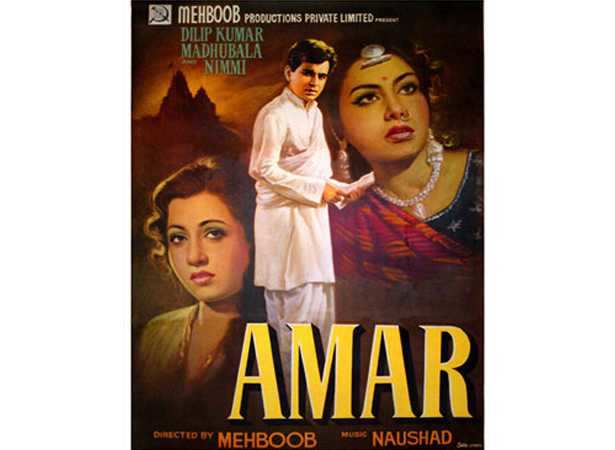
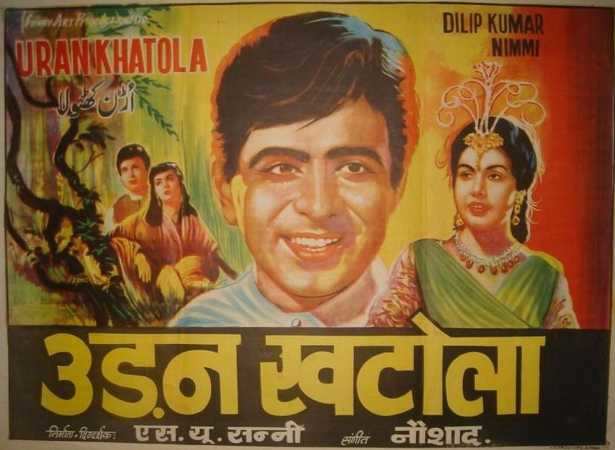
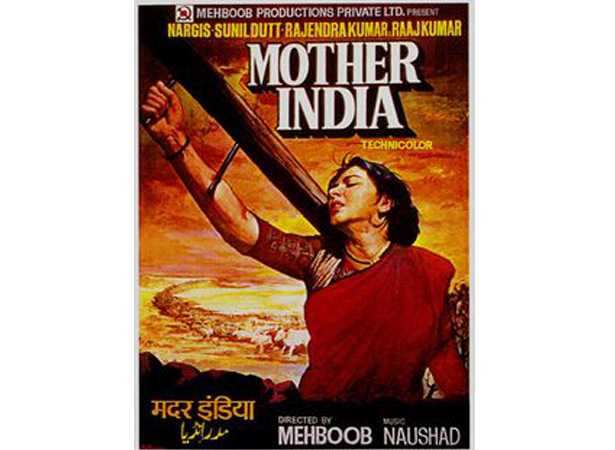
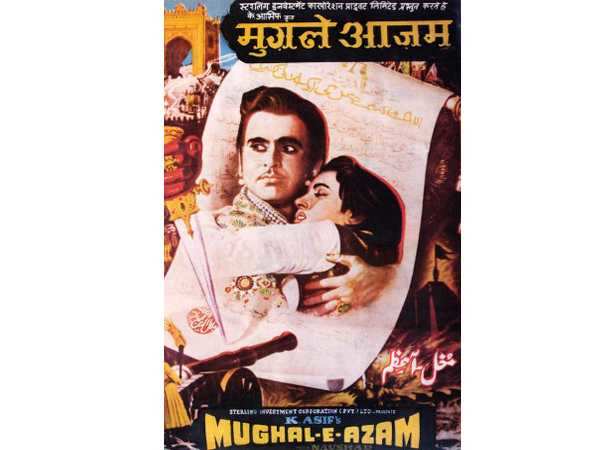
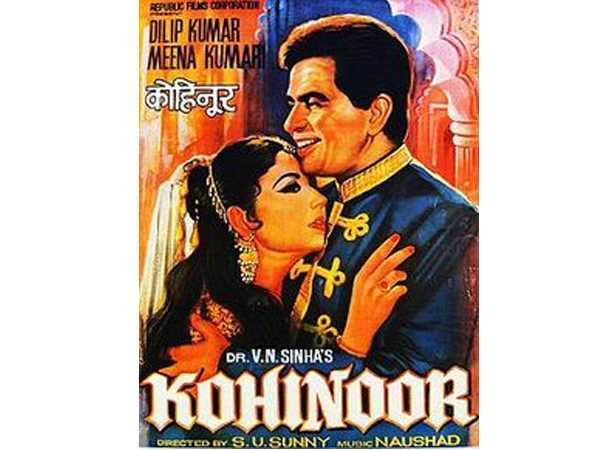
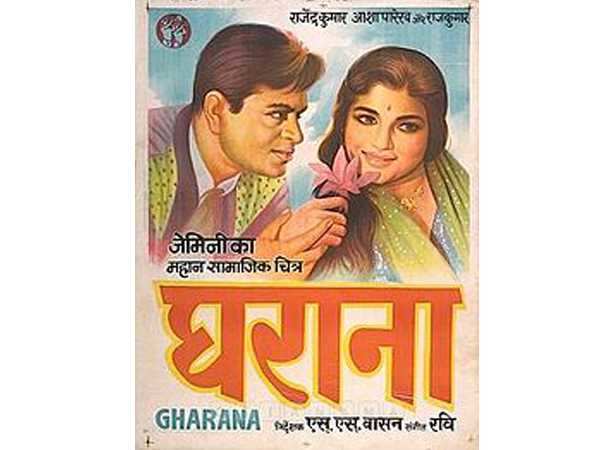
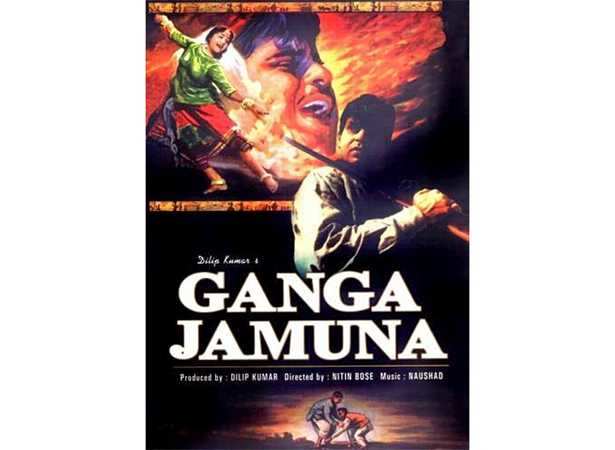
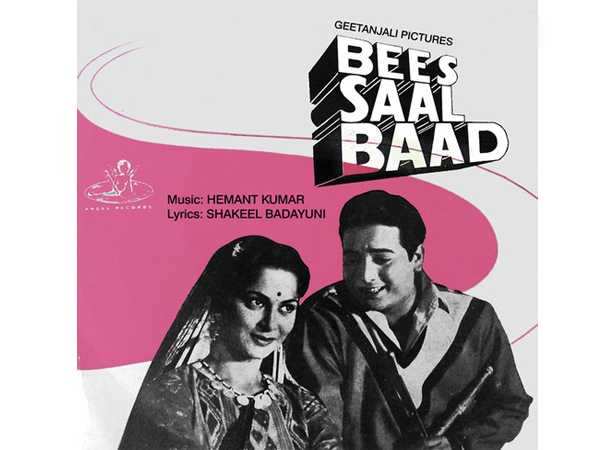
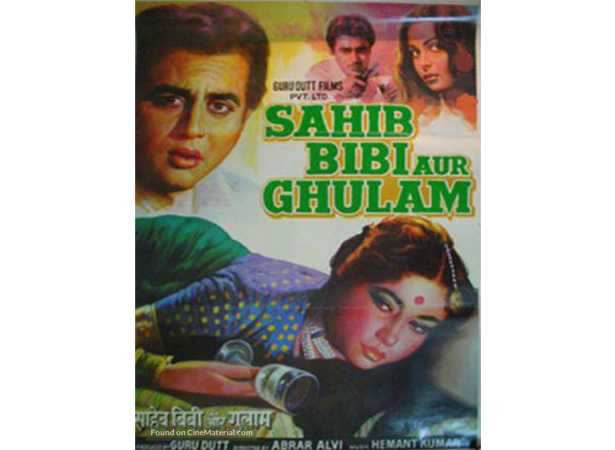
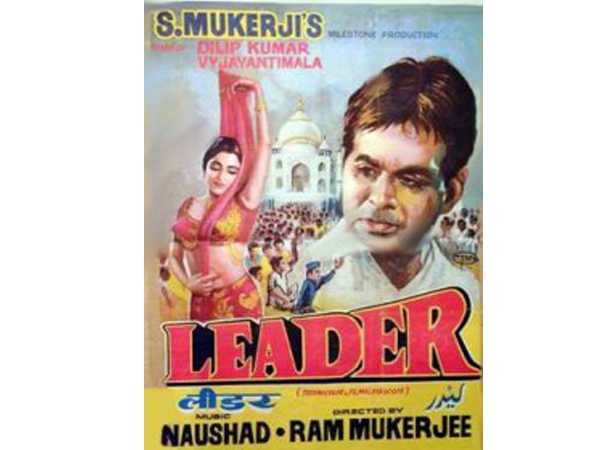
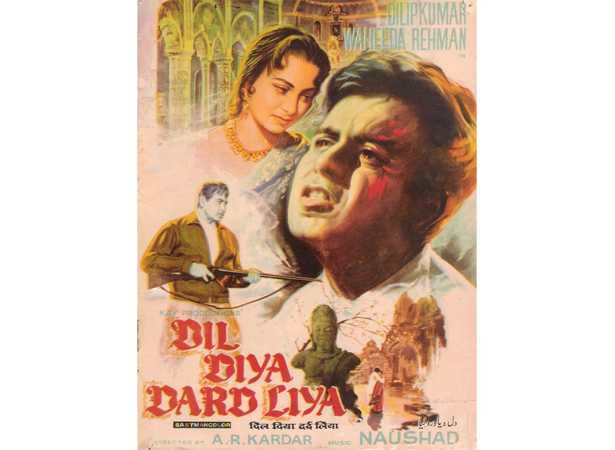
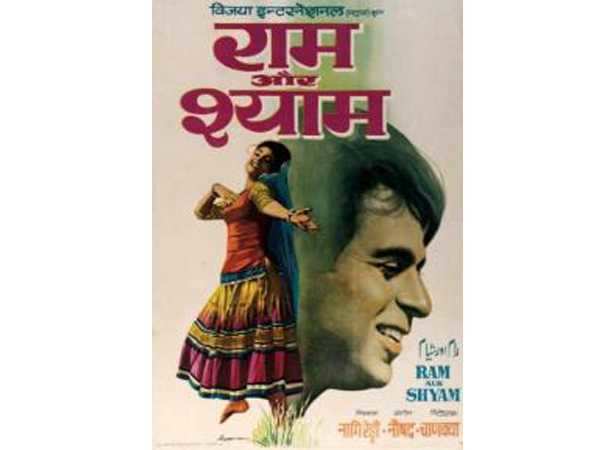


SHOW COMMENTS